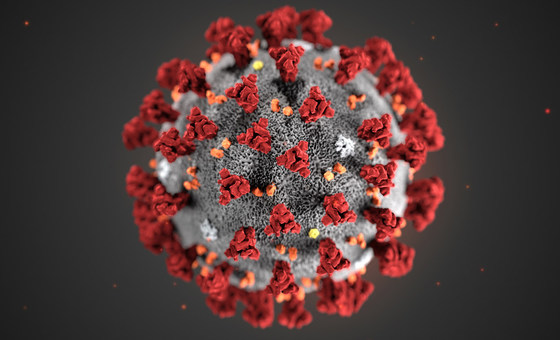Coronavirus global health emergency

WHO: Coronavirus disease (COVID-19) Pandemic
The World Health Organization (WHO) is working closely with global experts, governments and partners to rapidly expand scientific knowledge on this new virus, to track the spread and virulence of the virus, and to provide advice to countries and individuals on measures to protect health and prevent the spread of this outbreak.
What is a Coronavirus?
Coronaviruses (CoV) are a large family of viruses that cause illness ranging from the common cold to more severe diseases. Find out more about this novel coronavirus (nCoV) that has not been previously identified in humans.
WHO’s response in countries
Find out how the WHO is working across its 149 country offices to assist communities all over the world.
FAQs
What are the symptoms of COVID-19? How can I protect myself? Should I worry about COVID-19? Get the answers.
Verified
Verified is a United Nations initiative to encourage us all to check the advice we share.

COVID-19: Depression, anxiety soared 25 per cent in a year
2 March 2022 - In the first year of the COVID-19 pandemic, global rates of anxiety and depression increased by a massive 25 per cent, the World Health Organization (WHO) said on Wednesday.

General Assembly holds debate to boost momentum for universal COVID-19 vaccination
25 February 2022 - The President of the UN General Assembly appealed on Friday for greater global solidarity to vaccinate the entire world against COVID-19.

COVID-19: Health workers face ‘dangerous neglect’, warn WHO, ILO
25 February 2022 - The President of the UN General Assembly appealed on Friday for greater global solidarity to vaccinate the entire world against COVID-19.
Science in 5 is a video and podcast series reflecting WHO’s conversations in science. WHO experts explain the science related to COVID-19 in each 5 minute episode. Watch all episodes
In 2021, a deadly second wave of COVID-19 hit India hard, throwing medical facilities into turmoil as they struggled to meet the unprecedented spike in new cases. UNOPS worked with the government of Japan to bring life-saving equipment to vulnerable people in several parts of the country.
With large sections of the population unvaccinated, new variants, like Omicron, are likely to keep emerging. These new variants spread like wildfire and put everyone at increased risk. To end this destructive cycle, the UN says we must vaccinate at least 70% of the population in every country. The UN's vaccine strategy is to achieve this goal by mid-2022. This will require at least 11 billion vaccine doses – but the task is doable.





